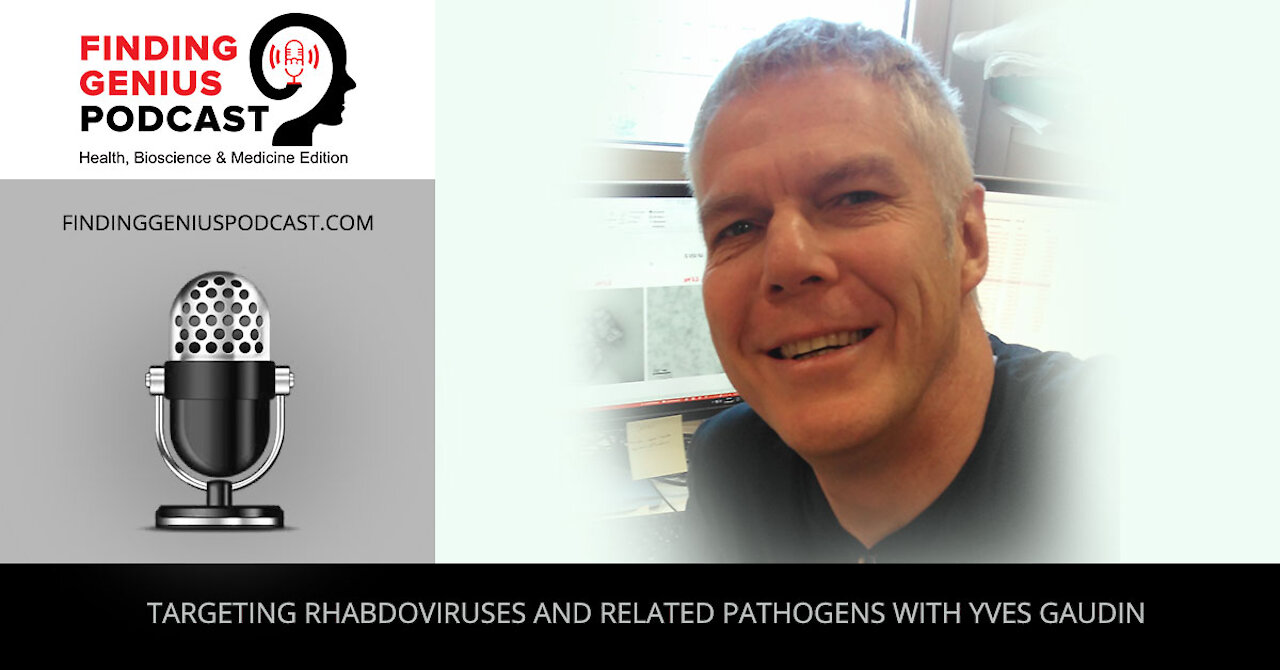Premium Only Content

Targeting Rhabdoviruses and Related Pathogens with Yves Gaudin
The rabies virus kills at least 60,000 people a year, worldwide. Because it is far more prevalent in lower economic status countries, it doesn't receive adequate funding for better vaccines or treatment. Researchers like Yves Gaudin are trying to change this. He works on understanding the mechanisms of rhabdovirus transmission.
Listen and learn
How rhabdoviruses enter cells and install their viral factories, which are protected by liquid phase separation,
Why the polymerase is key to making the viral particle infectious, and
How their efforts to destabilize the liquid phase separation that contains the viral factory is one main avenue to a possible treatment.
Yves Gaudin is a researcher with CNRS and the Institut de Biologie Intégrative de la Cellule. CNRS is France's National Center for Scientific Research. He's a virologist studying the rhabdovirus family, which includes the rabies virus, Chandipura virus (CHAV), and vesicular stomatitis virus (VSV). He describes two central mechanisms that characterize this family.
First the rhabdovirus causes a particular entry process and requires a polymerase for infection: the glycoprotein, which makes a spike around the virion, recognizes the cell receptor and attaches. This triggers endocytoses and an eventual fusion event allows the viral genome and polymerase is to be released into the cytoplasm. The polymerase immediately copies that genome into an mRNA, which then hijacks the cellular machinery. The polymerase presence is vital to infection—without it, the viral particle would be inert, so targeting that polymerase offers one attack possiblity.
Second, his lab has characterized the chemical nature of viral factory itself. It is distinguished by liquid phase separation—it is housed inside a compartment that separates it, like oil in water, from the cell cytoplasm. The interaction between this factory and our innate immune system spreads the infection, using the pathway to the synthesis of interferon, and so on.
This liquid phase separation helps the virus keep its identity in the cell and provides another focus for fighting these viruses. They hope to find small molecules that could destabilize this liquid phase separation or utilize some other weakness such as their sensitivity to temperature.
Here is the website where Yves Gaudin article is freely available: https://www.nature.com/articles/s41467-017-00102-9
In the section entitled additional information, listeners can find the movies: https://www.nature.com/articles/s41467-017-00102-9#additional-information
Available on Apple Podcasts: apple.co/2Os0myK
-
 25:05
25:05
FGP
4 days ago🚀 Health Tech Horizons: Innovation, Sleep Science, & The Future Of Care With Ron Richard 🌙💡
35 -
 3:04
3:04
KJRH
4 years agoExperts Warn of Coronavirus Related Scams Targeting Oklahomans
406 -
 0:41
0:41
KTNV
4 years agoScams targeting veterans
481 -
 0:38
0:38
WFTX
4 years agoStorm related scams
17 -
 2:07
2:07
Jamin13
4 years agoWe are related
20 -
 2:25
2:25
WGBA
4 years agoCommon scams targeting college students
831 -
 0:52
0:52
WFTX
4 years agoPandemic related resources for assistance
8 -
 15:00
15:00
Pixel
4 years agoSpace Game - Part 4 - Targeting
34 -
 1:47
1:47
WFTS
4 years agoUndercover sting busts men targeting kids
172 -
 LIVE
LIVE
VSiNLive
20 minutes agoA Numbers Game with Gill Alexander | Hour 1
408 watching